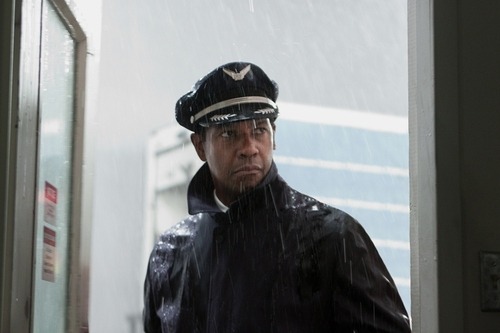
"You're a rock star, man! You will never pay for another drink as long as you live."
Blessed with one of the best trailers in recent memory, Robert Zemeckis' Flight arrives just in time to officially kick off the Fall prestige award movie season. A number of smaller films with awards ambitions have already come (Argo) and gone (The Master), but Flight is riding high with lots of positive buzz and excitement about it being Zemeckis' first live action film in 12 years. So, can it possibly live up to the hype?

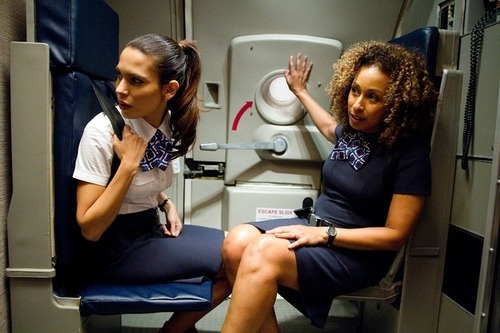
Flight opens with a brilliant sequence that would be most effective to anyone walking into the film with no knowledge of what the film is about. We meet Whip Whitaker (Denzel Washington) after a night of heavy boozing, sex & drugs, talking to his ex-wife on the phone about flying to Atlanta in two hours. In the next scene, we see that he's the one piloting said flight to Atlanta, and things are only going to get worse for Whip from here. After an equipment malfunction causes the plane to go into an uncontrollable nosedive, Whip goes into full blown Han Solo mode, and pulls some daredevil stunts that allow him to guide the plane away from a populated area, and make a crash landing.
Waking up in the hospital, he finds out that he saved the lives of all but six people on board the plane, and the media is hyping him as a hero. However, his union representative (Bruce Greenwood) brings him to meet with a lawyer (Don Cheadle), as a blood sample drawn from Whip at the crash site showed his blood alcohol level was three times the legal limit, as well as showing he had cocaine in his system. The reality of the situation begins to sink in, and Whip tries to get his life together, but, like so many alcoholics in real life, has a hard time beating his demons.
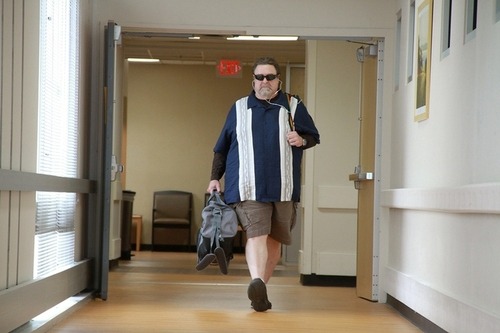
First and foremost, this film should be praised for its unflinching portrayal of addiction and the co-dependency that often springs either from it or as a result of it. Washington's performance is brilliant in depicting a man who thinks he's only in control of his life when he's drunk or high, but really has no control over anything. The film's writer, John Gatins, deserves all the credit in the world for bringing a very brutal and honest portrayal of addiction to the screen, and the film truly shines in the smaller moments when Whip loses control.
I had mentioned the film's trailer earlier, and I want to touch on two ways in which it is misleading. The trailer shows bits and pieces of the plane crash throughout, as if it's going to be pieced together over the course of the film, and that is not the case at all. The story is told in a completely linear way, and the crash happens around twenty minutes into the film. This is not necessarily a complaint, more of an observation.
The trailer also completely and totally omits the film's secondary lead, Nicole (Kelly Reilly). It's a bit confusing when you're not only introduced to this character in a story that runs parallel to the plane crash, but the more we learn about her character, the more she seems superfluous to the events of the film. Nicole and Whip meet in the hospital (she's in for a drug overdose) and they have a really good scene in a stairwell with another patient (James Badge Dale, in a fantastic cameo), but the more they build their relationship, the more she feels like a plot device than an actual character. In other words, her function to Whip's story is just a bit too on the nose to make it seem like a believable relationship would form between them. She serves a definite purpose in the story, but it could have functioned as well without her, particularly considering what drives Whip to make the final decision he makes in the film (which I won't spoil here).
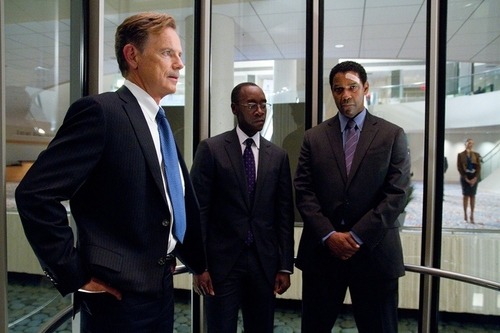
Zemeckis is always at his best when he's dealing with intimate character studies in the midst of chaos. Films like Back to the Future, Contact & Cast Away are at their best when they harness in on what makes their main character tick, but can also zoom out and show some major spectacle action sequences. The crash early in this film is harrowing, nail-biting, and phenomenally well executed, and the film's other bright spots mainly focus on Whip coming to terms with what his life has become.
Where the film falters is in its multiple subplots and characters that seem to do nothing but inflate the film's running time. The film could have stood to lose probably 20 of its 138 minutes, as it began to feel a bit bloated near the end. It was never boring, but it definitely lost momentum around the start of the third act. The film's soundtrack choices tend to be a bit too precocious (Joe Cocker's "Feelin' Alright" kicks in after a hit of cocaine, or "Under the Bridge" fading in right before Nicole's heroin overdose) but based on Zemeckis' penchant for choosing music that fits perfectly with on screen events, it was to be expected.
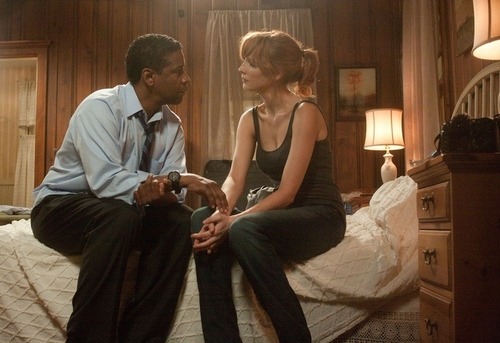
Ultimately, like Icarus, Flight ends up being a good film that flies too high to be a great film. It's not short on ambition, but it tries too hard to be great, and ends up falling short. Washington's performance is incredible, and I would recommend the film for his performance alone. He will likely get a Best Actor nomination, and it's well earned. I suppose there are worse things in this world than being a good film that tries too hard, but if some of the more heavy handed elements had been trimmed, it could have been a truly great film. At the end of the day though, it's still a worthy effort, and it's nice to have Zemeckis and Washington back in top form.
GO Rating: 3.5/5

[All photos via BoxOfficeMojo]
No comments:
Post a Comment